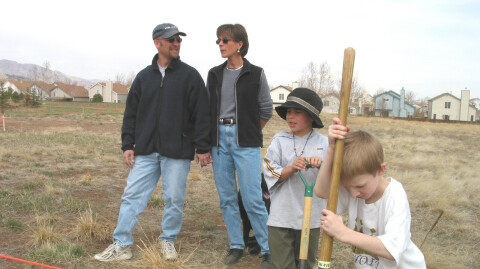
Preaching Posture of Waterstone – Part Five: Hunger
In this five-part series on the preaching posture of Waterstone, we have been articulating the Waterstone “philosophy” of preaching. These are the core values of our preaching team; that is, the kind of preaching and preacher to which we aspire. In the previous blogs, we talked about our first four values: humility, love, grace and craft. The fifth value of Waterstone preaching is hunger.
An effective preacher understands how human hearts yearn, and how a sermon can assist the hunger. Sometimes sermons are a fully cooked meal, other times we make people hungry, sometimes we remind people they have an appetite, and they should go prepare their own feast. The sermon goal depends on the Scripture text and the context of the people, but the careful preacher labors to understand the longings of a hungry heart in their culture, and then she preaches to the yearning.
The belief narratives[i] of our secular culture, when examined, can bring an accumulating emptiness. This generationally transcendent emptiness of living in a broken world is what Jesus spoke to with his massive statements like “I am the Bread of life” and “I am the living Water.” This is why our preaching has to get to the beauty, the “excellency” of Jesus Christ. At the root of every heart’s affections is that which gives their heart rest. Waterstone preaching seeks to bump into these affections every week. Timothy Keller illustrates:
Many years ago, in my first pastorate, I met with a teenage girl in our congregation. She was about sixteen at the time, and she was discouraged and becoming depressed. I tried to encourage her, but there was a revelatory moment when she said, “Yes, I know Jesus loves me, he saved me, he’s going to take me to heaven – but what good is it when no boy at school will even look at you?”
She said she “knew” all these truths about being a Christian, but they were of no comfort to her. The attention (or lack of it) of a cute boy was far more consoling, energizing, and foundational for her joy and self-worth than the love of Christ. Of course this was a perfectly normal response for a teenage girl. Nevertheless it was revealing for how our human hearts work.[ii]
The preacher is also careful not to further burden yearning hearts by challenging people to something unsustainable or something she or he will not do themselves. Years ago, there was a popular preaching series from an obscure verse in 1 Chronicles 4 called “The Prayer of Jabez.” The preacher would end the sermon by saying, “Stand up if you’ll commit to pray the Prayer of Jabez every day for the rest of your life.” People stood. They felt good, and when they all stood, the preacher felt good. But we wonder if those people and that preacher are doing it today. Brian Mavis, former curator of sermoncentral.com, wrote, “After running SermonCentral for several years and reading through 30,000-plus sermons submitted for uploading, I came to the conclusion that the problem with preaching isn't that sermons are unbiblical; it's that they are inhuman.”[iii]
The preacher must stir the heart hungry with a stirred heart. We cannot preach to the hearts of our congregation and culture unless we are constantly preaching from the heart. We cannot call people to something that we are not experiencing ourselves. What the Holy Spirit is to do in the hearts of our listeners he will normally do first in and through the preacher. Timothy Keller describes the personal hunger of a preacher:
[Preaching] comes down to your spiritual life as a preacher. Are you “sensing Christ on your heart” as you preach? Are you, in a way, meditating and contemplating him during the very act of preaching? Are you actually praising him as you talk about his praiseworthiness? Are you actually humbling yourself as you talk of your sin? The answer will be very evident to any attentive listener… Prepare the preacher more than you prepare the sermon.[iv]
[i] Belief narratives in our culture include: “History is cyclical, with no direction.” “What’s most important is my happiness.” “Freedom is choice without limits as long as no one gets hurt.” “We must construct our own meanings for life.” “Good and evil are human constructs.”
[ii] Timothy Keller, Preaching, 163.
[iii] Steve Cuss, “Hitting the Homiletical Target,” Discovery Church document.
[iv] Timothy Keller, Preaching, 205.



